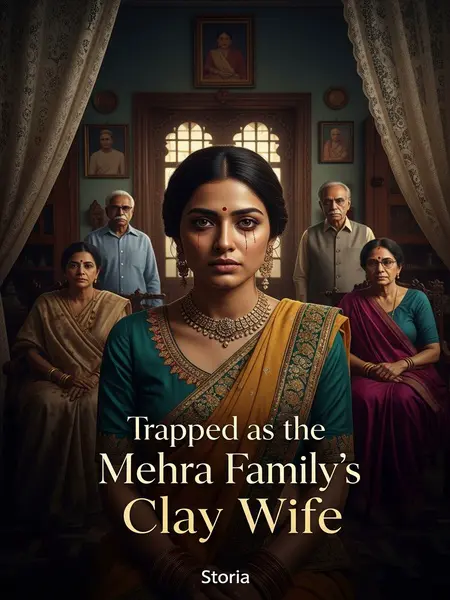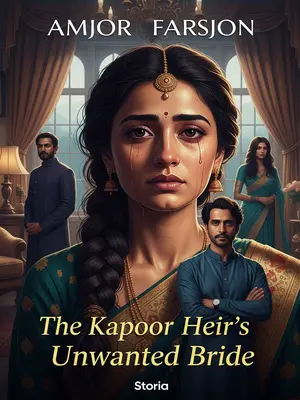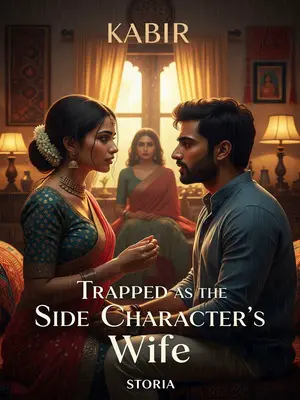Chapter 7: Debts and Promises
Early the next morning, I went to the hospital.
My brother Sameer lay quietly in bed, staring blankly at the ceiling.
He had been a teenage prodigy.
But on the way to a competition, a car accident killed our parents. He was lucky to survive, but became a vegetable.
Later, a new drug from abroad miraculously woke him, but the medicine was expensive, costing over twenty lakh a year.
But it was hope, after all.
Dadaji, at an age when he should have retired, supported me and returned to practice, travelling all over the country day and night to cover the high medical bills.
After the accident, I couldn't handle the blow and dropped out of school, once feeling life was hopeless.
But Dadaji told me in his weathered voice:
"The world is complex and varied, and life shouldn't have just one definition. Even if you don't go to school, you can still study on your own. Dadaji will live a long life, watch you grow up, see you married, and wait for Sameer to wake up."
His words echoed in my heart every time the world felt heavy. Even the nurses at the hospital, used to seeing grief, offered me extra chai on hard days.
In fact, Arjun was the husband Dadaji had carefully chosen for me.
He said he owed Rajeev Mehra a great debt, and if I married into the Mehra family, father and son would treat me well.
Twenty-five years ago, on a rainy night, the starving and freezing Rajeev collapsed at Dadaji's clinic.
After being saved, he knelt before Dadaji, begging for a way to survive.
Rajeev studied ayurveda under Dadaji for five years, working hard and humbly, washing Dadaji's feet every day.
At first, Dadaji refused, but Rajeev wept, saying he'd sworn an oath and had to do this to repay his lifesaver, or he'd be struck by lightning.
After completing his studies, Rajeev left Dadaji and returned to his hometown in Uttar Pradesh, quickly building a business. Every Diwali, he would rush to Lucknow to kneel and wash Dadaji's feet once.
It was the kind of tradition that even the neighbours gossiped about: "Mehra saab still touches the old vaidya's feet, hai na? Must be some serious debt of gratitude."
Eight years ago, he brought his wife and children back to Lucknow. By then, Dadaji was president of the Lucknow Ayurveda Association. With Dadaji's endorsement, Rajeev invested to found Mehra Pharmaceuticals.
Soon after, Rajeev brought lavish gifts to arrange my marriage to Arjun with Dadaji.
But in my third year of marriage,
Dadaji died of a heart attack in the decoction room.
One day, I went to the study to ask Arjun for my brother's medical expenses, and accidentally overheard his conversation with Rajeev:
"Her Dadaji's been dead so long—why are we still supporting her and that useless brother?"
"Arjun, you forget, the most important thing is appearances. The guruji was very kind to me."
"But Neha has endured so much for so long. Back then, to let me marry Riya, she had to go abroad pregnant to give birth to Aarav. Now Aarav is five—shouldn't the real grandson be recognised by the family?"
"Of course, the Mehra family's blood must be recognised, but things can't be rushed. The guruji saved many powerful people over the years. Otherwise, how could your second uncle's whole family have their jobs so easily solved?"
"Dad, you can't always be so soft. Back then, her Dadaji wouldn't approve the new product. If I hadn't taken the medicine the day he had his heart attack, would Mehra Pharmaceuticals have what it does today?"
Rajeev sighed heavily.
"That day, I watched the guruji struggle on the ground, and my heart felt like it was being sliced apart..."
Their voices were hushed, but the meaning was clear, and something cold settled in my chest. Even the shadows on the wall seemed to draw closer, listening in on old betrayals.





